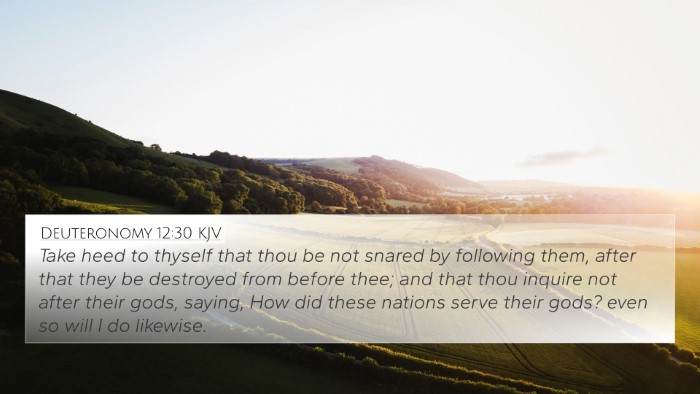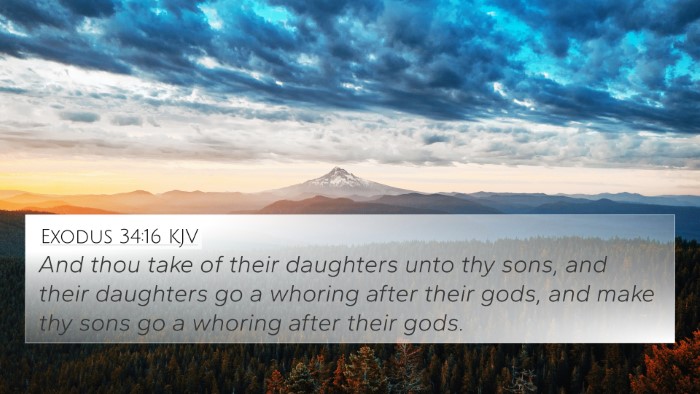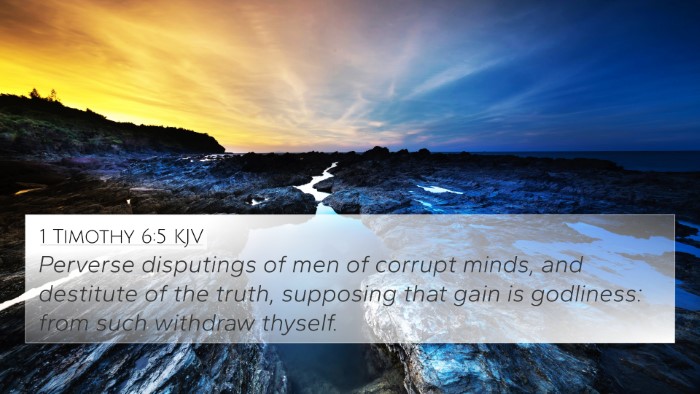Understanding Deuteronomy 20:18
Verse: Deuteronomy 20:18 states, "But that they may teach you not to do after all their abominations, which they have done unto their gods; and so should sin against the LORD your God."
Meaning and Interpretation
This verse serves as a strong warning against the influences of idolatry present in the lands surrounding Israel. The context reflects God's desire to protect His people from adopting the corrupt practices of these nations.
Key Insights:
- Moral Instruction: God emphasizes the importance of adherence to His commandments, teaching the Israelites to resist the temptation of idolatry.
- Consequences of Abomination: The practices of surrounding nations are identified as abominations that could lead the Israelites into sin against God.
- Protective Measures: The divine directive aims to safeguard the covenant relationship between God and His chosen people.
Connections with Other Bible Verses
Deuteronomy 20:18 resonates with several other scriptures that address the theme of rejecting idolatry and upholding fidelity to God. Here are some significant cross-references:
- Exodus 23:24: "Thou shalt not bow down to their gods, nor serve them, nor do after their works: but thou shalt utterly overthrow them, and quite break down their images." This emphasizes the seriousness of not engaging with foreign idols.
- Leviticus 18:30: "Therefore shall ye keep mine ordinance, that ye commit not any one of these abominable customs, which were committed before you." This verse highlights the importance of maintaining God's law as a preventive measure against abominations.
- Deuteronomy 7:25-26: "The graven images of their gods shall ye burn with fire: thou shalt not desire the silver or gold that is on them, nor take it unto thee, lest thou be snared therein: for it is an abomination to the LORD thy God." This correlates with the theme of rejection of idol worship.
- Psalm 106:34-36: "They did not destroy the nations concerning whom the LORD commanded them: but were mingled among the heathen, and learned their works. And they served their idols: which were a snare unto them." This passage illustrates the consequences of failing to heed God's warnings.
- Romans 12:2: "And be not conformed to this world: but be ye transformed by the renewing of your mind, that ye may prove what is that good, and acceptable, and perfect, will of God." This directive mirrors the call for God's people to remain distinct and faithful.
- 1 Corinthians 10:14: "Wherefore, my dearly beloved, flee from idolatry." This New Testament admonition brings the ancient call against idolatry into contemporary Christian practice.
- James 4:4: "Ye adulterers and adulteresses, know ye not that the friendship of the world is enmity with God?" This reinforces the concept of loyalty to God over worldly influences.
Comparative Bible Verse Analysis
When engaging in comparative biblical study, we can observe connections between Old and New Testament themes that underline the importance of fidelity to God. The warnings against idolatry found in Deuteronomy echo through the New Testament, where believers are encouraged to maintain purity in their faith.
Thematic Bible Verse Connections
Idolatry is a recurring theme throughout the Bible, subjects that link various passages and enrich the understanding of God's commandments:
- The concept of holiness: The call to be holy is woven throughout scripture, from God's command to Israel to 1 Peter 1:16's reaffirmation.
- The dangers of compromise: The mingling of Israel with surrounding nations poses a critical examination of maintaining faith without compromise.
- The importance of teaching: The need for teaching and instruction within the community is vital as seen in Deuteronomy 6:7, which commands parents to impart God's law to their children.
Tools for Bible Cross-Referencing
Utilizing a bible concordance or a bible cross-reference guide can aid in finding scriptures that relate to various themes, including the abominations mentioned in Deuteronomy. This study method enriches understanding through scriptural cross-referencing, creating an inter-biblical dialogue that allows for a richer comprehension of God's commands.
Conclusion
Deuteronomy 20:18 is a potent reminder of the need to adhere to God's commandments and to examine the influences that surround us. By utilizing cross-referencing tools and engaging in thematic studies, believers can find depth and relevance in these ancient instructions, ensuring that they remain focused on their covenant relationship with God.

















